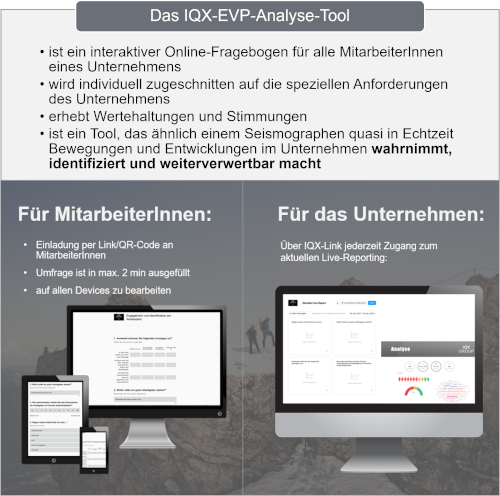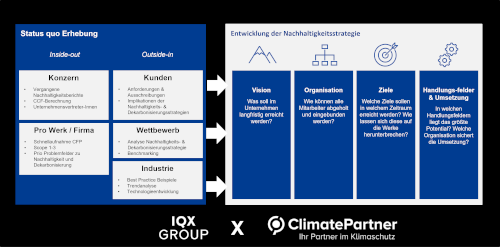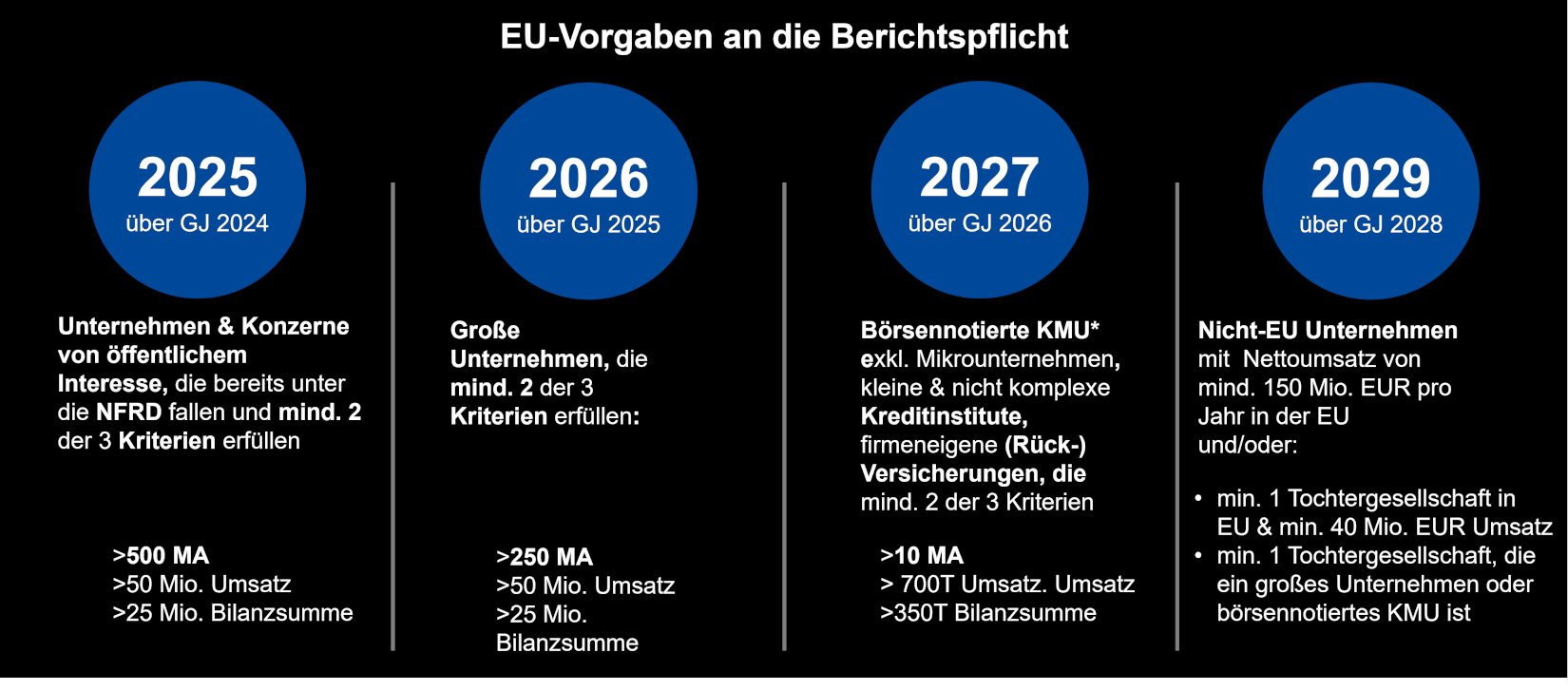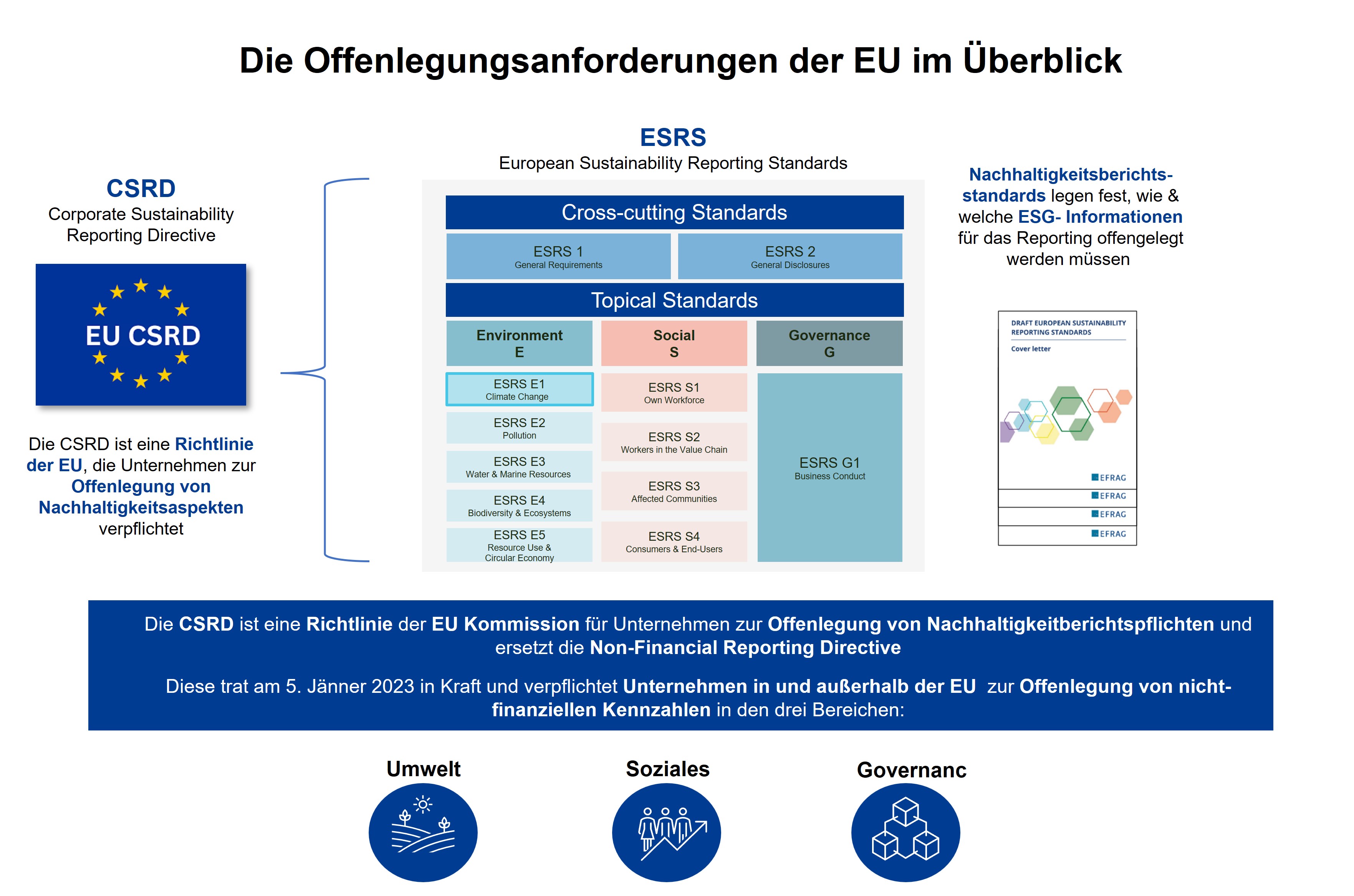INTERIM MANAGEMENT - CONSULTING EMPOWERED
Interim management with IQX system
In today's fast-moving business world, companies must be able to respond flexibly and efficiently to challenges. Interim management has established itself as a valuable tool, especially when it is strengthened by in-depth consulting experience - more precisely, by consulting-empowered competencies that rely on systematic methodologies such as the IQX system . This system offers a well-thought-out and proven structure that enables interim managers not only to master business challenges, but also to achieve sustainable and measurable results. It is this systematic approach that consulting-empowered interim managers indispensable partners in critical company situations.
-
Structured problem analysis and solution
The IQX system is a crucial component that enables consulting-empowered interim managers It provides a methodological structure that allows problems to be systematically identified, analyzed and workable solutions developed. IQX system ensures that no aspect is overlooked and solutions are not just superficial, but profound and sustainable.
Through the IQX system, interim managers are able to develop a clear, step-by-step plan that is directly tailored to the specific needs of the company. This systematic approach ensures that everyone involved clearly understands what steps need to be taken to resolve the problem and that these steps are implemented effectively.
-
Process optimization
A key advantage of the IQX system is its ability to systematically optimize business processes. Consulting-empowered interim managers use this system to quickly identify inefficient processes and implement sustainable improvements. The IQX system makes it possible not only to improve processes, but also to optimize them in a measurable and understandable way, so that the results last in the long term.
With the IQX system, interim managers can specifically identify weak points in the process chain and, based on this, take concrete measures to increase efficiency and minimize waste of resources. This leads to a significant improvement in company performance and creates a clear competitive advantage.
-
Goal-oriented implementation
The IQX system also plays a central role in the goal-oriented implementation of corporate strategies. Consulting-empowered interim managers use this system to ensure that strategic goals are not only developed but also successfully implemented. The IQX system defines clear goals and systematically measures progress to ensure that all actions are aligned with these goals.
The strength of the IQX system lies in its ability to bring transparency and traceability to the implementation process. Through this system, interim managers can not only track progress, but also ensure that all measures are implemented effectively and the desired results are achieved.
-
Anchoring best practices with the IQX system
Consulting-empowered interim managers use the IQX system to sustainably anchor best practices in the company. This system enables you to identify the best methods from different areas and successfully integrate them into the specific context of the company. The IQX system ensures that these best practices are implemented in the company not just in the short term, but permanently.
By systematically applying the IQX system, interim managers can establish valuable processes and methods in the company that lead to improved efficiency and effectiveness in the long term. This sustainable anchoring of best practices strengthens the company's competitiveness and creates a solid foundation for future success.
-
Change management and systematic change
Change processes are often complex and challenging, but consulting-empowered interim managers use the IQX system to effectively manage such processes. The IQX system offers a structured approach to change management that ensures that changes are systematically planned, implemented and monitored.
The IQX system helps minimize resistance to change and ensures that everyone involved understands the need and benefits of change. This promotes acceptance and increases the likelihood of successful change management. Consulting-empowered interim managers use the IQX system to ensure that change is not only initiated, but also sustainably anchored in the company.
-
Risk and crisis management
A systematic approach to risk and crisis management is crucial, and this is where the IQX system a central role. Consulting-empowered interim managers use this system to identify risks early and develop preventive measures that ensure potential crises are managed quickly and effectively.
The IQX system enables interim managers to systematically assess risks and take action before problems develop into serious crises. This proactive and structured approach is crucial to stabilizing a company in uncertain times and successfully leading it through crisis situations.

What sets us apart from other interim management providers?
Founded as a consulting company, we have developed into a company that now uses extensive consulting know-how, mostly in the context of interim activities. In contrast to other providers of interim services, we are able to use interim mandates to professionally optimize your operational processes.
At the same time, we do not rely on a very large pool of experts, but rather on a team of more than 60 hand-picked personalities who can draw on our entire wealth of experience from 20 years of consulting work. The proximity of our headquarters to Eastern Europe makes us ideal for providing services there - over many years we have built up the necessary structures here and are continually expanding them.
Is interim management sustainable?
In challenging times when internal resources reach their limits, interim management proves to be the optimal solution. Our interim managers temporarily take on various roles such as line functions, as project managers or as coaches. With their extensive specialist knowledge and many years of experience, they offer valuable support for companies that strive for sustainable change.
Our experts not only bring their specialist knowledge, but are also experienced in establishing sustainable structures. They work closely with organizations to understand their individual needs and develop tailored solutions. With their experience and commitment, they help companies overcome challenges and achieve long-term success.
-
Introduction of best practices
An interim manager brings with him a wealth of experience from different industries and companies in which he has already worked. This diversity of experience allows him to integrate proven methods and processes that have proven successful in other contexts into the company. Adopting such best practices often leads to immediate improvements in operations, but the true value is seen in the long term. By introducing more efficient processes, clear structures and modern management methods, the interim manager lays the foundation for long-term optimization. These new standards will remain in place even after his departure and will help the company to work more efficiently in the long term, reduce costs and improve the quality of products or services. The introduction of such best practices creates sustainable added value as it not only delivers short-term results, but enables the company to continuously operate at a higher level.
-
Strengthening internal competencies
An experienced interim manager sees his role not only in solving problems and overcoming challenges, but also in strengthening and developing the internal team. During his time at the company, he works closely with employees, identifies their strengths and development needs and passes on his knowledge in a targeted manner. This can be done through training, workshops or simply by working together every day. This transfer of knowledge ensures that the team is not only able to overcome current challenges, but is also better equipped for future tasks. The interim manager leaves behind a strengthened team that has the necessary skills and self-confidence to work successfully independently even after his departure. This investment in the people in the company ensures a lasting impact as it creates the basis for the company's long-term development and adaptability.
-
Implementation of sustainable strategies
Interim managers are often brought into the company in times of upheaval or when strategic realignments are necessary. Your job is not only to find short-term solutions to acute problems, but also to develop a long-term strategy that puts the company on the right path. An experienced interim manager analyzes the company and its environment, identifies opportunities and risks and, based on this, develops a strategy that makes the company future-proof. This strategy is not only developed, but also implemented directly, so that the first successes become visible during the interim phase. The strategic decisions that the interim manager makes have an impact far beyond his time in the company. They ensure that the company not only responds to current challenges, but is also prepared for future developments. The sustainability of these strategies is demonstrated by the fact that they help the company to remain competitive in the long term and to assert itself successfully in the market.
-
Creating a culture of change
An interim manager often comes to companies that are going through a phase of change. His role is not only to manage this change, but to establish a culture of change within the company. Through his experience and leadership behavior, he shows employees that changes are not only necessary, but can also be positive. By successfully initiating and implementing change, he creates an atmosphere in which innovation is encouraged and continuous improvement is pursued. This culture of change and flexibility is adopted by employees and continued even after the interim manager leaves the company. This will make the company more flexible in the long term and better able to adapt to changing market conditions. Creating such a culture of change ensures that the company can not only respond to challenges in the short term, but is also able to proactively adapt to future developments and grow continuously.

Where and in which areas do we operate?
Our customers mostly operate internationally, which implies that we also operate internationally for our customers. This is not just limited to the German-speaking area - we operate in other European countries, but also from Asia to Mexico.
Example areas of activity are:
- Restructuring of companies or functional areas
- Turnaround management
- Mergers & Acquisitions
- Project management
- Supplier Quality Assurance
- Supplier Supply Chain Assurance
- Saving projects in difficult situations
- Bridging vacancies for line functions
- Addition of professional competence
- Introduction of new technologies
- Operational excellence
- Cost reduction
- Downsizing of companies or parts of companies

What are the benefits of using an interim manager?
Using an interim manager offers companies a variety of advantages that go beyond bridging leadership gaps in the short term. These experienced temporary managers are not only able to react quickly and effectively in crisis situations, but they also bring a depth of knowledge and experience that can make the difference in many cases. In a business world that is changing increasingly quickly and in which companies have to be flexible and adaptable, the use of an interim manager is often a strategic decision that ensures sustainable success. Key advantages that the use of an interim manager offers:
-
Immediate availability and quick training
A key advantage of an interim manager is their ability to take on responsibility at short notice and without a long lead time. Companies that are in a critical phase or suddenly lose a manager cannot afford long vacancy periods. The process of finding a permanent successor can take months, during which important decisions and projects could stall. Interim managers, on the other hand, are often ready to work within a few days and have the experience that enables them to familiarize themselves with new tasks in the shortest possible time. You are used to quickly diving into complex situations, identifying operational challenges and becoming productive immediately. This rapid onboarding minimizes the risk of leadership gaps and ensures operations continue to run smoothly without causing delays.
-
Extensive experience and expertise
Interim managers bring with them deep and broad expertise that they have acquired in various industries and companies. These leaders have already overcome many different challenges and can therefore draw on a rich repertoire of solutions and best practices. Their experience allows them to make informed decisions quickly and solve problems efficiently because they are familiar with the dynamics and pitfalls of a wide range of business situations. This extensive experience is particularly valuable when the company faces new or particularly difficult challenges for which internal knowledge and experience may not be sufficient. Interim managers use their external perspective and in-depth specialist knowledge to develop innovative approaches and strategically advance the company, even in areas that require special specialists.
-
Objectivity and independence
Another key advantage of using an interim manager is his objectivity. As an external manager, he brings an unbiased perspective to the company that is free of internal political entanglements and historical pressures. This independence allows the interim manager to make decisions that are solely in the best interests of the company, without having to take personal interests or past decisions into account. This objective perspective is particularly invaluable in situations that involve breaking down entrenched structures, initiating profound changes, or solving complex problems that could be complicated by internal dynamics. The interim manager can develop and implement clear, pragmatic solutions that mean the best for the company in the long term, while also making unpleasant but necessary decisions.
-
Flexibility and adaptability
Interim managers are known for their exceptional flexibility and adaptability. You are used to working in different corporate environments and quickly adapting to new structures and cultures. This adaptability allows them to work effectively in both stable and turbulent times. They adapt their role and approach depending on the specific needs of the company, whether in a period of rapid growth, restructuring or during a crisis. Their ability to react flexibly to changes ensures that they always do exactly what is required in the given situation. In a business world characterized by constant change, this flexibility is particularly valuable. It enables the interim manager to act dynamically, react to unforeseen challenges and steer the company safely through choppy waters.
-
Focus on results and execution strength
Interim managers are highly results-oriented and focus on achieving specific goals within a set time period. They bring strong implementation skills that enable them to take action quickly and effectively to achieve the desired results. Unlike permanent leaders who may be tied to long-term internal processes and policies, interim managers focus on achieving short-term wins and moving projects forward quickly. This goal orientation and implementation strength ensures that projects and initiatives are not only started, but also successfully completed. Interim managers are particularly valuable in situations where quick results are required, be it implementing restructuring measures, introducing new technologies or improving operational processes. Her ability to work in a focused and goal-oriented manner makes her an important player who not only plans, but also acts, ensuring the success of the company.
-
Cost control and efficiency
The use of an interim manager also offers significant advantages from a financial perspective. While interim manager fees may seem high at first glance, they offer a cost-effective solution when you consider the flexibility and results achieved. Companies only pay for the service actually provided and can flexibly structure the duration of the engagement, depending on their needs and budget. There are no long-term commitments as with a permanent position, and the company can use the interim manager for exactly as long as it is needed. This cost efficiency, combined with the high probability of success, makes the use of an interim manager an economically sensible decision, especially in times of change or for specific projects. The ability to deliver results quickly and effectively means the business benefits from maximum benefits at controlled costs.
In which areas of the company is interim management used?
Interim management is used in a variety of corporate areas, often when a quick and competent management solution is required. Companies rely on interim managers to fill critical gaps when a manager suddenly leaves or when special expertise is needed that is not currently available in the company. Particularly in times of change or crisis, interim management is a proven means of ensuring that the company stays on track and that the set goals are achieved.
In the finance department, for example, an interim CFO can help ensure financial stability if the company is going through a restructuring or needs short-term external expertise to deal with a crisis. Especially in economically challenging times, when liquidity needs to be secured and costs need to be reduced, interim CFOs have the necessary experience to make well-founded decisions and strengthen the trust of investors and banks. Their role is also often crucial in company takeovers or mergers in order to make complex financial transactions run smoothly and to efficiently manage the integration of new parts of the company.
In the area of production, interim management is often used when production processes need to be optimized or completely reorganized. An interim production manager not only brings fresh perspectives, but also has the necessary assertiveness to implement changes quickly and effectively. It ensures that production goals are achieved even in difficult times and at the same time the quality and efficiency of production is increased. This is particularly important in industries that are characterized by tight margins and high demands on production flexibility, such as the automotive or consumer goods industries.
Sales is another area in which interim managers are often used, especially when it comes to opening up new markets or optimizing existing sales structures. An interim sales manager can help you react quickly to changing market conditions, develop new strategies and immediately put them into practice. It is often used to support the company during a period of growth, launching new products or driving geographical expansion. His experience and network make it possible to achieve sales goals efficiently and to optimally position the company strategically.
In the area of IT and technology, the use of interim managers is particularly in demand when technological upheavals are imminent or comprehensive digitalization projects need to be implemented. An interim CTO not only brings technical expertise, but also the ability to lead teams and successfully manage complex projects. It plays a key role when it comes to modernizing the IT infrastructure, implementing new software solutions or driving forward the company's digital transformation. In an increasingly digital world, his role is crucial in making the company future-proof and maintaining its technological edge.
Interim management is also a proven means of ensuring the necessary leadership skills in times of change or staff shortages. During a restructuring phase, for example, an interim HR manager can ensure that the change is successful not only organizationally but also culturally. He brings with him the experience to accompany complex change processes, to take the employees with him and at the same time to ensure that the company retains its attractiveness as an employer. An experienced HR interim manager is invaluable, especially in phases in which quick decisions and changes are necessary.
Overall, it shows that interim management can be used in almost all areas of the company to overcome special challenges, fill gaps and lead the company through difficult phases. Whether in the finance department, production, sales, IT or human resources – interim managers have the necessary expertise and flexibility to achieve sustainable results in a short time. They are not only crisis managers, but also designers and implementers who strategically advance the company and keep it on the path to success. In an increasingly complex business world, they have become indispensable partners, supporting companies at crucial moments and ensuring that changes are not only planned but also successfully implemented.

Are interim managers worth their money?
Daily rates between 1,100 € and 2,000 € and this “full-time” – over several months – many a financial manager has beads of sweat on their foreheads. From their perspective this may also be understandable. However, the use of interim managers is often essential because demographic change has already fully begun in most companies. Experts in specific specialist areas - with leadership experience, empathetic, highly communicative and fully flexible for the geographical area of operation - this is how the wish list of the employees required for the future of your company reads. Unfortunately, this target image is increasingly resembling an unrealistic ideal that can hardly be found on the open labor market anymore. From our experience, more and more experts with relevant skills only want to use them temporarily in jobs (temporary mandates) with high energy and also want to have the time and freedom to regenerate after a mandate. In addition, the “TOTAL COST of OWNERSHIP” is also required for such business cases.
Consideration: Immediate availability and therefore no loss due to understaffing, no additional wage costs, no bonuses, no fees for staff hunters, no termination costs, deployment “on demand” and much more are important aspects when deciding “Search for permanent employment” vs. “Interim -Management".
Interim managers always come alone?
Anyone who has ever actively dealt with the topic of interim management knows about the costs that come with hiring a highly specialized temporary manager. If you ask managing directors who have already gained experience working with renowned interim managers, it quickly becomes clear why this working model, which is already established in many European countries, is becoming increasingly apparent.
You pay two to three times as much for an interim manager compared to equivalent employees - if you can find them. This is clearly put into perspective with well-known arguments such as unpaid sick leave and vacation, higher work performance and immediate availability, but it is still only the tip of the iceberg. Interim managers are usually highly networked high potentials with good, personal contacts at all management levels in pretty much any area that is potentially of interest to the client. New suppliers with an excellent price/performance ratio, reliable planning partners, public service providers such as service centers in the university sector or decision-makers at authorities are just a few examples of the numerous new contacts that you more or less buy with your commitment.
Birds of a feather like to socialize” is a saying but also a fact that applies particularly to managers who, thanks to their communicative nature, are in regular contact with each other and quickly make new contacts. Although their experiences are very diverse, reputable interim managers are usually only active in a small niche, but they have experts in their environment for almost every subject area at hand in order to be able to solve cross-departmental challenges quickly and competently in tricky situations - often without additional costs for the client.Consulting companies with a network structure have the greatest leverage over interim providers or the numerous lone wolves, as personal exchange is the order of the day thanks to the constant team members and the friendly relationship.
This means that even the most complex problems can be analyzed competently and resolved in the best possible way in the shortest possible time. And if someone doesn't make it? – the next morning the team of experts is personally at the door and steers the sailing boat safely into the harbor, even in the worst of storms. Especially in difficult situations, the question is not whether you have costs or not, but only whether you pay before or after and to whom. However, if the decision is made beforehand, there is a real chance of not only minimizing the costs, but also converting them into a profit through the added value that an interim manager passively brings with them, because: An interim manager rarely comes alone.













